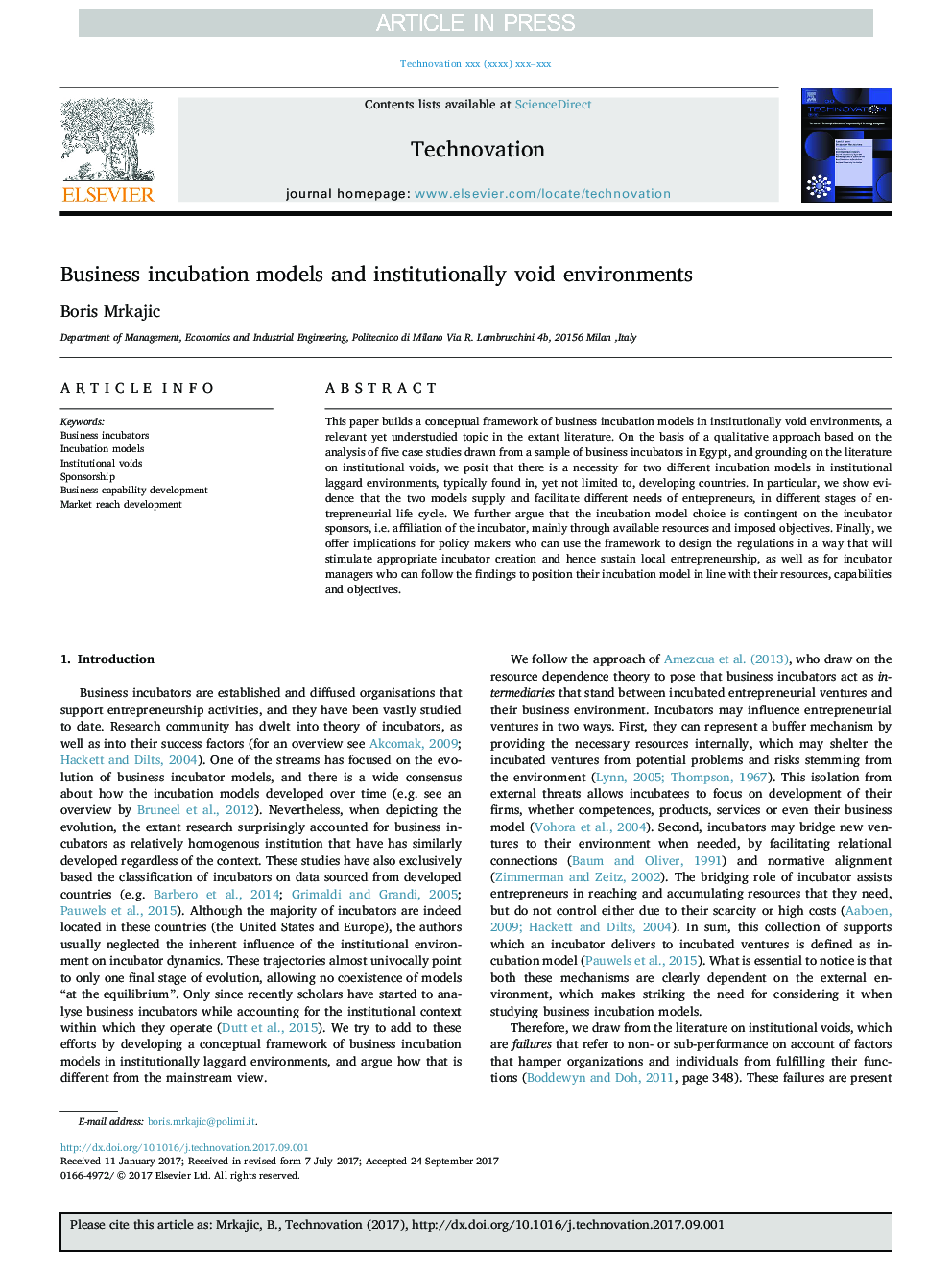| Article ID | Journal | Published Year | Pages | File Type |
|---|---|---|---|---|
| 7427162 | Technovation | 2017 | 12 Pages |
Abstract
This paper builds a conceptual framework of business incubation models in institutionally void environments, a relevant yet understudied topic in the extant literature. On the basis of a qualitative approach based on the analysis of five case studies drawn from a sample of business incubators in Egypt, and grounding on the literature on institutional voids, we posit that there is a necessity for two different incubation models in institutional laggard environments, typically found in, yet not limited to, developing countries. In particular, we show evidence that the two models supply and facilitate different needs of entrepreneurs, in different stages of entrepreneurial life cycle. We further argue that the incubation model choice is contingent on the incubator sponsors, i.e. affiliation of the incubator, mainly through available resources and imposed objectives. Finally, we offer implications for policy makers who can use the framework to design the regulations in a way that will stimulate appropriate incubator creation and hence sustain local entrepreneurship, as well as for incubator managers who can follow the findings to position their incubation model in line with their resources, capabilities and objectives.
Related Topics
Social Sciences and Humanities
Business, Management and Accounting
Business and International Management
Authors
Boris Mrkajic,
